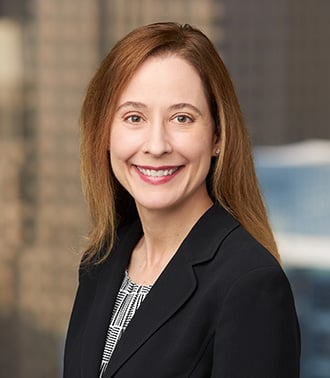Chiefs of the DOJ and SEC’s FCPA Units Take the Stage at the ACI FCPA Conference
The annual American Conference Institute (ACI) International Conference on the Foreign Corrupt Practices Act (FCPA) kicked off today with remarks from leaders of the FCPA Units at the Department of Justice and Securities and Exchange Commission. The ACI Conference is a premier event in the FCPA world, and your Enforcement Edge team is here and ready to blog.
Some key takeaways from statements by David Last and David Fuhr, the Chief and Assistant Chief of the DOJ’s FCPA Unit, include:
- Focus on both the supply side and the demand side of bribery: The DOJ is increasingly using money laundering laws to go after bribe recipients, along with using the FCPA (among other statutes) to go after bribe payors. As examples, Last and Fuhr cited recent prosecutions of former Venezuelan, Ecuadorian and Bolivian government officials involved in corruption. (Interestingly, the speakers frequently mentioned cases involving Latin America.) They also emphasized that DOJ intends to prosecute the intermediaries who facilitate bribe payments.
- Willingness to take challenging cases to trial: The leaders of DOJ’s FCPA Unit acknowledged that prosecutions of individuals for foreign bribery can be challenging but made clear that individual accountability is part of the DOJ’s mission. They touted a DOJ win at trial in New York this past spring, with the conviction of Roger Ng, a former investment banker, for his role in the scandal involving 1MDB, a Malaysian sovereign wealth fund. They also noted that some FCPA cases dismissed at the District Court level are on appeal in the Fifth Circuit.
- International collaboration has been a “game changer”: DOJ frequently receives cooperation, as well as original tips, from law enforcement partners in other countries who are committed to tackling international corruption. So far this year, all corporate resolutions of criminal FCPA cases have been coordinated with foreign authorities.
- Focus on compliance: The DOJ’s Criminal Fraud Section has expanded its Corporate Enforcement, Compliance and Policy Unit, bringing in lawyers with corporate compliance expertise. And more generally, the DOJ has been focused on providing more guidance regarding corporate compliance, as publicized earlier this year by Deputy Attorney General Lisa Monaco in what has become known as the “Monaco Memo.”
- Attention to how companies compensate their employees and how they deal with ephemeral messaging: The Monaco Memo’s statements about ephemeral messaging and employee compensation have piqued the interest of many companies. “We get that companies are struggling with how to address this internally,” Last said. He further acknowledged that a reason these issues are complicated is that they may implicate employment, data privacy and other laws, whether in the US or other countries. According to Last, what is most important is that companies think through the issues of how their employees use messaging apps and personal devices for business-related communications that may need to be preserved and how compensation structures may incentivize or disincentivize compliance.
Some interesting takeaways from remarks by Charles Cain and Tracy Price, the Chief and Deputy Chief of the SEC’s FCPA Unit, include:
- Size of the SEC’s FCPA Unit has remained consistent: The FCPA Unit continues to have 35 full-time employees, including lawyers and forensic accountants. As necessary, the FCPA Unit also draws on other attorneys with foreign language abilities and frequently collaborates with other arms of the SEC.
- There is an ebb and flow of what cases come out of the pipeline: Charles Cain acknowledged that the number of SEC FCPA enforcement actions brought this year is lower than in some past years, but he cautioned against reading into these numbers, saying there is always an ebb and flow to when new cases are announced. Still, he noted that the Covid-19 pandemic did slow down some FCPA investigations. And when asked why the SEC has brought fewer FCPA cases against individuals than the DOJ has, he noted that establishing personal jurisdiction can be a challenge in civil cases concerning foreign bribery.
- Biden administration considers the fight against corruption to be a national security priority: SEC officials noted that, while the SEC is an independent agency, the Biden administration’s focus on combatting corruption has been helpful to the SEC’s enforcement of the FCPA.
- Core mission is to protect investors: SEC officials emphasized that, when deciding what cases to bring and how to resolve companies, they always consider the interests of investors. When asked about how the FCPA Unit approaches corporate compliance, SEC officials stated “our primary focus” is on internal accounting controls and the protection of investor assets. They noted concerns about corporate slush funds and misrecorded transactions, regardless of whether bribery actually takes place.
- Seaboard factors still alive and well: SEC officials repeatedly mentioned the “Seaboard” factors, referring to a report the SEC issued back in 2001 that lays out factors the SEC will consider when evaluating a company’s cooperation with the Commission.
- Attention to ephemeral messaging: On the hot topic of ephemeral messaging, SEC officials pointed out that, for some regulated entities, there are specific recordkeeping requirements, but for other companies there are fewer rules of the road. Cain acknowledged the reality that, regardless of corporate policies, some employees are going to use personal devices and unapproved messaging apps. He nevertheless offered that, when evaluating a company’s cooperation with an SEC investigation, the Commission will look at how companies address that risk.
© Arnold & Porter Kaye Scholer LLP 2022 All Rights Reserved. This blog post is intended to be a general summary of the law and does not constitute legal advice. You should consult with counsel to determine applicable legal requirements in a specific fact situation.


